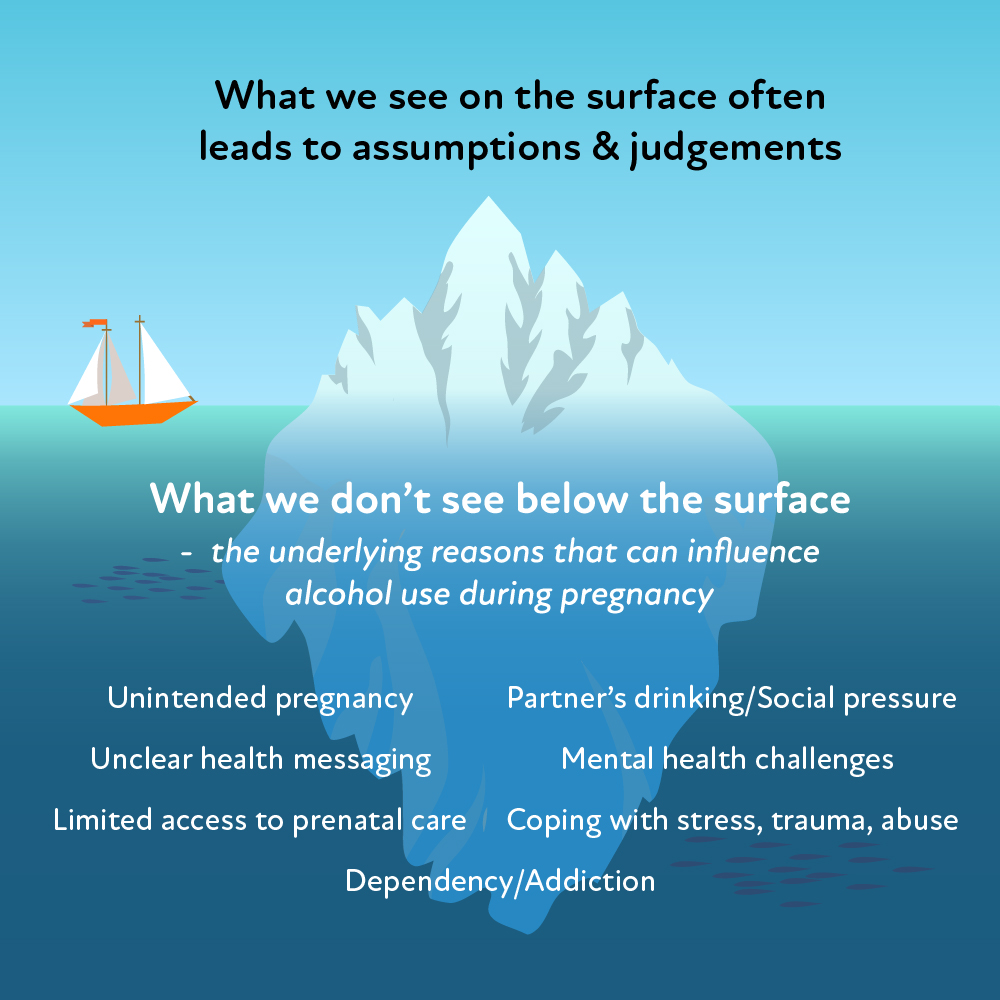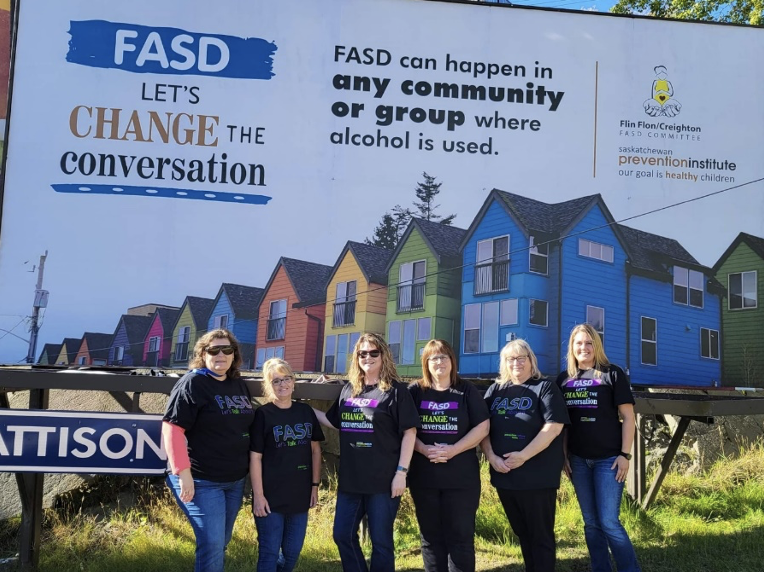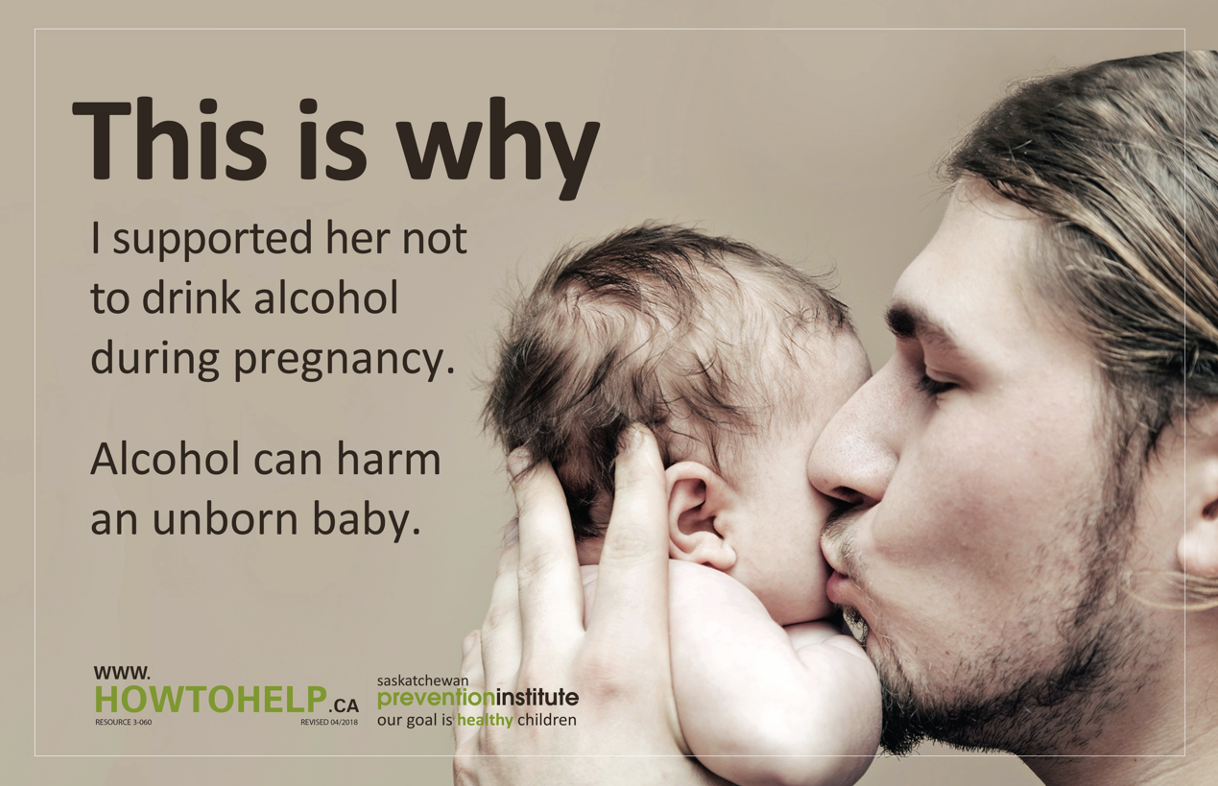What is FASD?
Fetal Alcohol Spectrum Disorder is one of the leading causes of neurodevelopmental disorders.

Up to 4% of Canadians have FASD (1 in 25)
While it can’t be cured, early and appropriate support can make a positive impact and improve outcomes for individuals with FASD.
FASD can happen in any community or group where alcohol is used, regardless of ethnicity, culture, or socio-economic status.
Why might people drink alcohol?
The reasons why someone may drink alcohol can be complex and not easy to see. When a person becomes pregnant, these reasons do not always change.
Each person’s circumstances can influence their ability to maintain a healthy pregnancy.

How can we all be a village of support?
Preventing FASD is more than simply recommending no alcohol use in pregnancy. We all have a role to play in preventing FASD.
If you are a partner, family, friend, or community member:
Educate yourself and get involved
Learn about FASD, its causes, and its impacts on individuals, families, and caregivers. Participate in awareness events (e.g., FASD Awareness Day on September 9th)
Share information
Share reliable information from trusted sources about pregnancy, alcohol, and FASD (e.g., Saskatchewan Prevention Institute, FASD Network of Saskatchewan, CanFASD). Spread awareness on social media, through conversations, and during events.
Support and advocate for pregnant people
Ensure access to adequate nutrition, financial resources, addictions services, and services for those who are experiencing domestic violence.
Create alcohol free environments and events
Reduce alcohol use around pregnant people. Organize local alcohol-free events (e.g., popcorn movie night, snowshoeing with hot chocolate).
Encourage talking to service providers
If you know someone who is pregnant or trying to get pregnant that is having difficulty avoiding alcohol, encourage them to talk to a service provider (e.g., healthcare providers, addictions counsellors).
Host an educational community event
Invite someone to talk about their personal experiences with FASD. Personal stories can help reduce stigma.
If you are a service provider:
Provide non-judgemental support
When people feel accepted and respected, they are more likely to seek help and share their struggles.
Share information
Share relevant evidence-based information and resources from trusted sources (e.g., Saskatchewan Prevention Institute, FASD Network of Saskatchewan, CanFASD) on birth control, pregnancy, alcohol and FASD.
Holistic support
Provide support for each person considering their mental, physical, emotional, and spiritual needs within their family, community, and culture.
Build compassionate relationships
When you show compassion and empathy for someone, they feel more comfortable sharing their story.
Reflective listening
People feel listened to if you validate and reflect back their experiences, thoughts, and feelings.
Build on strengths
When you build on someone’s strengths, you help to increase their confidence.
Link to supports
Help people connect with supports in the province, in their community, or online as needed.
Learn motivational interviewing (MI) skills
MI can help people make healthy changes like reducing or stopping drinking alcohol. Learn more through trainings*, books, or online resources.
*The Saskatchewan Prevention Institute regularly provides motivational interviewing training.
Village of Support Success Stories
Below are examples of organizations that are part of a village of support in their community. Many have worked with the Prevention Institute to raise awareness of FASD and support healthy pregnancies.
If you have a story to share of how you or someone in your community has contributed to the prevention of FASD by supporting healthy pregnancies, please click here.
#Bethevillage
Together we can raise FASD awareness and build a village that supports healthy pregnancies and embraces individuals living with FASD.
To learn more about the FASD Prevention Program of the Saskatchewan Prevention Institute, click here.



